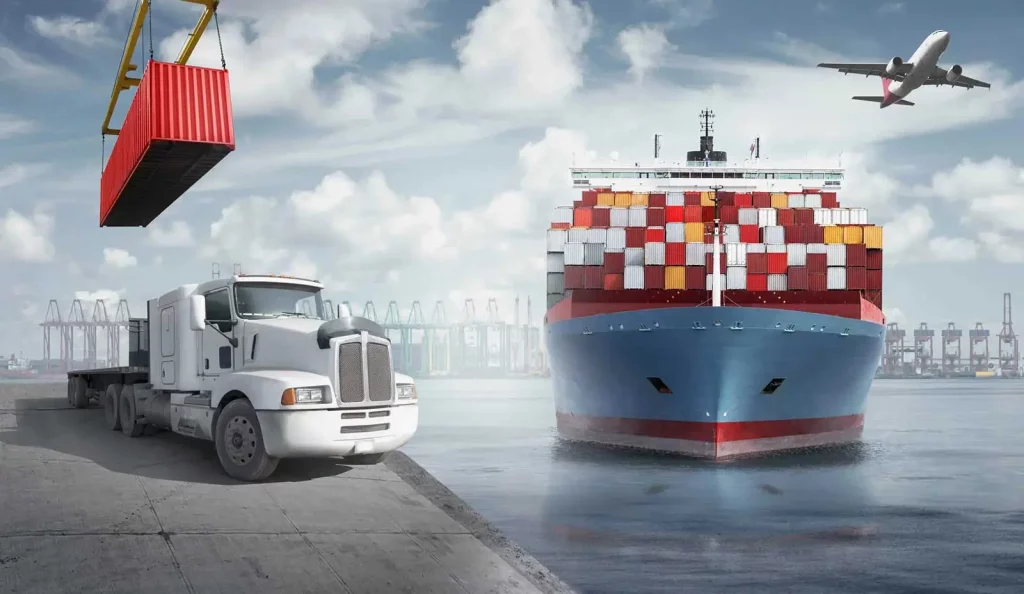Cargo is a general term for goods and products sent from one place to another for transportation. It typically refers to goods transported for commercial purposes and can be shipped using various methods, including road, sea, air, and rail transportation.
Cargo services utilize various logistics and tracking systems to ensure that shipments reach their destination safely and on time. Cargo transportation serves a wide range of users, from individual consumers to large businesses.
Table of Contents
What are cargo processes?
The process of transporting a physical item or product from one location to another, known as shipping or cargo handling, follows a specific sequence of steps. Proper tracking of these processes is essential for ensuring efficient and reliable cargo services. Cargo services provide various benefits, including fast delivery, reliability, and cost-effectiveness, enabling efficient trade and personal shipments.
We can classify the steps in the cargo process as follows:
- Collection: The shipment is picked up from the sender.
- Storage and loading: The shipments are stored at a collection center and loaded onto a transportation vehicle.
- Transportation: The shipment is transported to the destination using the designated method of transportation.
- Distribution and delivery: The shipment is delivered to the recipient at the destination.
FiCommerce recommends: Enhance efficiency by utilizing end-to-end solutions with fulfillment services for reliable cargo processes.
Types of cargo
Cargo types vary based on the method of transportation, the type of shipment, and the speed of delivery. Each category has its own subtypes depending on its use.

1. Cargo types based on transportation method
Road cargo: Transportation done via trucks, trailers, and other road vehicles. It is typically preferred for short and medium distances.
Sea cargo: Cargo transported by sea. Shipping by sea is often chosen for large and heavy items in international transport. Although the logistics process may take longer, it is generally more cost-effective.
Air cargo: Transportation done via airplanes. Air cargo is preferred for fast, international deliveries, often used for valuable, urgent, or lightweight items.
Rail cargo: Cargo transported by train. Rail transport is typically chosen for moving large volumes of goods over long distances, often compared to road transport.
Combined transport: A cargo transportation method involving more than one mode of transport (e.g., road-air, sea-road). It is used to meet different logistical needs and is often preferred for complex logistics operations
2. Cargo types based on the type of shipment
Partial cargo: This type of cargo combines loads from multiple shippers into a single vehicle. It is cost-effective for small and medium-sized shipments.
Full cargo: A type of cargo where the entire load belongs to one shipper and is transported in a single vehicle. It is used for large or urgent shipments.
Hazardous material cargo: Involves the transportation of chemicals, explosives, and other dangerous materials. It follows specific packaging and transport regulations.
Cold chain cargo: A type of cargo that requires products to be kept at a certain temperature, commonly used for perishable items like food and medicine.
Valuable cargo: Involves the transportation of high-value items such as jewelry or money. It requires security measures and insurance.
Live animal cargo: Refers to the transportation of live animals, including pets, livestock, racehorses, and exotic animals, following specific regulations to ensure the animals’ health and safety.
3. Cargo types based on delivery time
- Express cargo: Used for shipments that require fast delivery, typically within 24-48 hours.
- Standard cargo: A more economical option, used for shipments that can be delivered over a longer period, typically ranging from a few days to a few weeks.
These different types of cargo are chosen based on the specific transportation needs of businesses or individuals. For example, air cargo is often preferred for quick deliveries, while sea cargo is used for transporting large-volume goods.
Curious about How to Ship Cargo in E-Commerce? Check out our other content on this topic.





